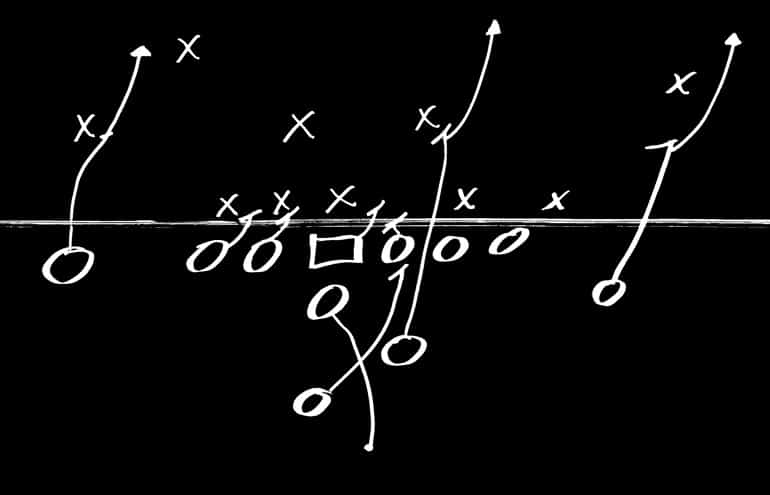Play to your strengths if you want your business development strategy to move the ball.

Watching the NFL playoffs has me reflecting on the Minnesota Vikings’ frustrating season. Earlier in the year, when our quarterback, Kirk Cousins, went down with a season-ending injury, I (along with everyone else) thought a bad season was inevitable. Then Josh Dobbs was brought in to replace Cousins and, after just a few days with the team, propelled us to an exciting win on Monday Night Football. I was not the only fan feeling optimism. But after a couple bad outings, Dobbs was replaced, and his replacement was replaced.
Just like that, we had gone through four quarterbacks on our way to a 7-10 record, missing the playoffs.
True, an injury to an elite player like Cousins made success unlikely. Still, I can’t help but wonder what might have happened if the Vikings had utilized Dobbs better. I’m no football offensive expert but I do know that Dobbs is a scrambler; yet the Vikings had him drop back and stay in the pocket because that’s their system.
Adapt Business Development Strategy to Your Talents
If there’s one thing I’ve learned from my many years of coaching lawyers, it’s to play to their strengths.
I’ve seen a lot of firms create boilerplate plans or a playbook of sorts for marketing and business development: Join an organization, write articles, give presentations, take referral sources to lunch. While any of these activities can be very effective, they can be equally ineffective depending on a lawyer’s personality, practice and execution.
Why would you attend a large conference if you stand by yourself at the reception or work in your room? Why would you write articles if it’s a torturous and unfulfilling process? Why would you give presentations if you break out in a cold sweat just taking the stage?
Of course, everyone should try to improve their weaknesses. Lawyers should be able to hold their own at an event. Lawyers should improve their writing skills. Lawyers should get comfortable in front of a room. But, with all the marketing and business development options available to you, the bulk of your activities should be things you like or want to do — and do well.
Focusing on What You Do Well
Some people like attending conferences. But, if you’re uneasy at large events and have to go, find ways to make them feel smaller. Research the group and the attendees so you feel comfortable with the meeting. Contact some people ahead of time so there are friendly faces to greet. Set up some interactions during the conference, like scheduling breakfasts or coffees or planning to sit by someone you know in a session. Plan your conversation starters for breaks or cocktail parties so you’re ready. Sign up for pre-conference or small-group sessions.
Some people like preparing substantive and in-depth legal analyses. However, if you don’t have the time or interest, write short, conversational pieces that you can include in blog posts, firm blasts or LinkedIn posts. Interview clients, prospective clients, colleagues or other subject-matter experts to connect with people at the same time. Send personal emails to people who should know about the topic.
Some people like speaking to a large audience. But, if you’re not comfortable with big rooms or formal presentations, participate in alternative forums. Organize a panel and be the facilitator. Invite co-presenters, like clients or colleagues. Find ways to break audiences into discussion groups to create a smaller feel or more interaction. Host small-group roundtables or do a podcast.
Business Development Has a Lot in Common with Sports
We often use phrases like “the long game,” “marathons, not sprints” or “advancing the ball.” This is yet another example: The best coaches put their players in a position to succeed; do the same thing for your business development.
Illustration ©iStockPhoto.com
Check out these marketing and business development arti from Sally Schmidt:
“Writing Your Annual Marketing Plan”
“Moving a Client From ‘Satisfied’ to ‘Loyal’“
“How to Make the Most of Client Visits“
“Turning Rate Increase Discussions Into Opportunities“
“Building a Solid Relationship With Clients Throughout the Client Journey“
Subscribe to Attorney at Work
Get really good ideas every day for your law practice: Subscribe to the Daily Dispatch (it’s free) or Weekly Wrap. Follow us on Twitter @attnyatwork.
















